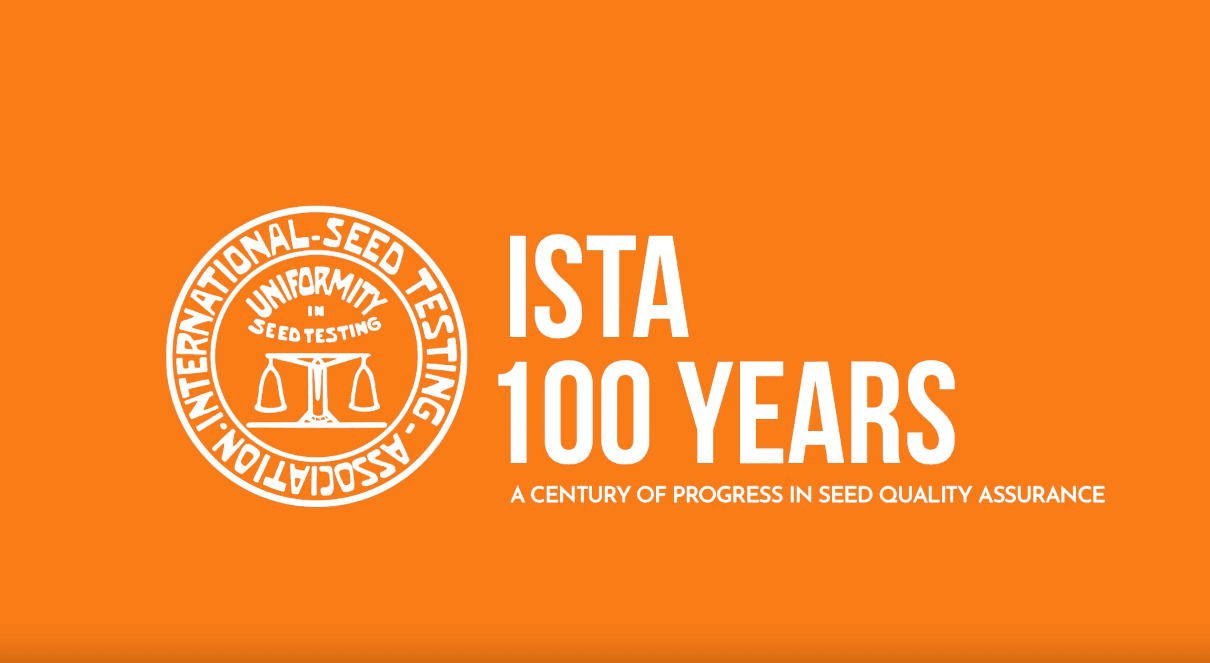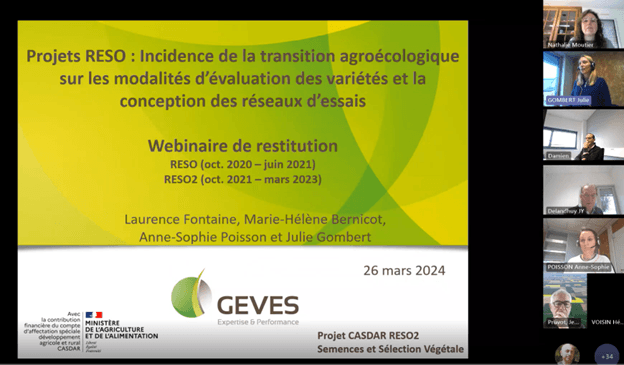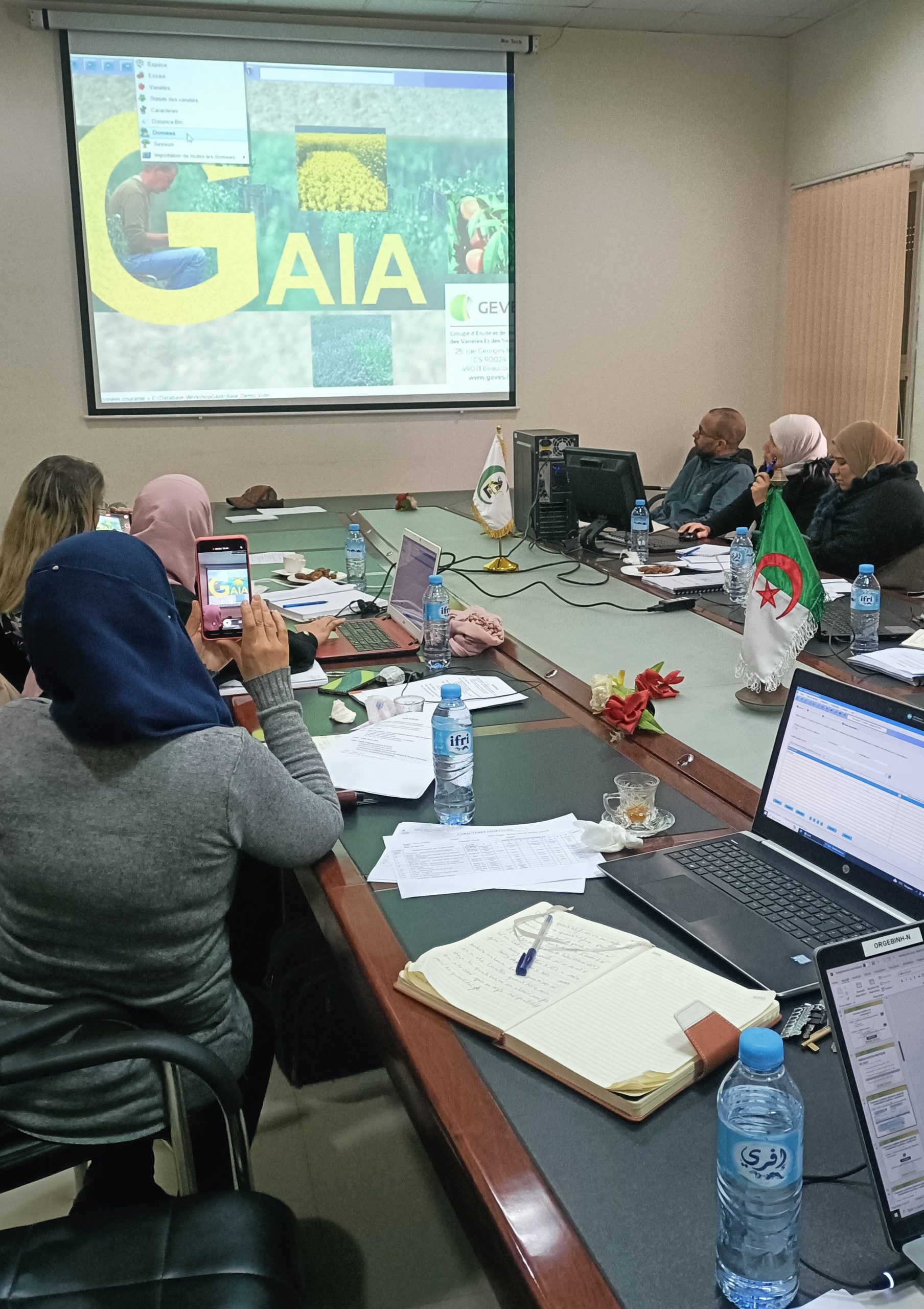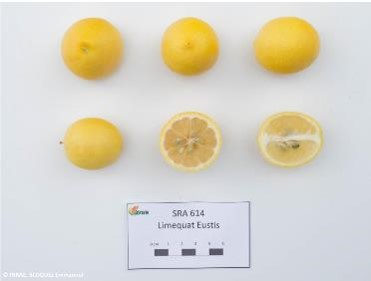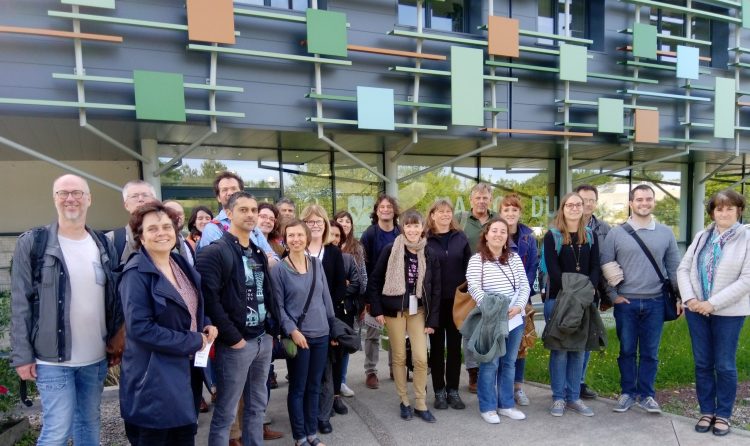
CPVO Harmores 3 final meeting
In recent years many new varieties have developed with intermediate resistance. The objective of the Harmores 3 project was to harmonise resistance tests in terms of reference material (isolates and varieties), test conditions, notation scales and interpretation rules, and to propose new harmonised and robust protocols to the CPVO for performing official DUS tests (distinctness – uniformity – stability) for variety protection and registration.
On 15–16 May, the final meeting of the Harmores 3 project (cofounded by the CPVO and coordinated by GEVES) was held at Angers. Representatives from seven examination offices (CREA, GEVES, INIA, Naktuinbouw, NEBIH, SASA, UKZUZ), one French technical institute (CTIFL) and eight seeds companies (ESA) attended the meeting. On the agenda was the validation of new harmonised protocols for seven host-pathogens couple which were studied (tomato/Meloidogyne incognita and Fusarium oxysporum f. sp. lycopersici, melon/Podosphaera xanthii and Fusarium oxysporum f. sp. melonis, pea/Erysiphe pisi), in order to achieve harmonisation in DUS-testing.
This validation phase followed the selection of reference material and protocols carried out over the first two years of the project through workshops and comparative tests. For each host/pathogen pair, the following aspects were discussed:
- Controls varieties
- Reference isolates
- Inoculation methods
- Observation scale
- Interpretation rules for controls and varieties in study
Harmonised protocols for six out of the seven host/pathogen pairs were validated and will be proposed to CPVO to be published. For melon/ Podosphaera xanthii and the use of markers for tomato/ Fusarium oxysporum f. sp. Lycopersici, results did not allow validation at this stage and the steering committee decided to postpone the conclusion for these protocols until after further testing.
The use of statistical tests to judge variety behaviour was presented via the PATHOSTAT tool. This statistical application is currently being developed by GEVES for a better interpretation of responses in bio-tests and will soon be freely available on the GEVES website. The use of statistical tests to support expert analysis will be incorporated in the proposed CPVO protocols.

